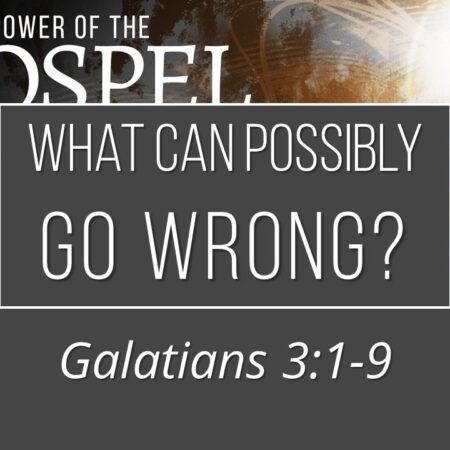Let me give you a few quotes: some of them are found on their website, others are found in his books and workshop papers.
Brian McLaren:
“I must add, though, that I don’t believe making disciples must equal making adherents to the Christian religion. It may be advisable in many (not all) circumstances to help people become followers of Jesus and remain within their Buddhist, Hindu, or Jewish contexts.”
Brian McLaren (Finding the Way Again):
“And during his lifetime, Abraham – like Moses, Jesus, and Muhammad – had an encounter with God that distinguished him from his contemporaries and propelled him into a mission, introducing a new way of life that changed the world.
How appropriate that the three Abrahamic religions begin with a journey into the unknown.
Tony Jones:
“A New Theology for a New World” A workshop for the Emergent Convention in San Diego
“We do not think this Emerging Church Movement is about changing your worship service. We do not think this is about how you structure your church staff. This is actually ABOUT CHANGING THEOLOGY. This is about our belief that THEOLOGY CHANGES. The message of the gospel changes. It’s not just the method that changes.
Rob Bell in his book “Love Wins”:
“A staggering number of people have been taught that a select few Christians will spend forever in a peaceful, joyous place called heaven, while the rest of humanity spends forever in torment and punishment in hell with no chance of anything better…
This is misguided and toxic and ultimately subverts the contagious spread of Jesus’ message of love, peace, forgiveness, and joy that our world desperately needs to hear.”
Doug Pagitt in his book “Preaching Re-Imagined”:
“I’m writing with the assumption that most of you who are reading this book have concluded what I have: Preaching doesn’t work….preaching, as we know it, is a tragically broken endeavor…
The value of our practices – including preaching – ought to be judged by their effects on our communities and the ways in which they help us move toward life with God.”
“Future of Religion Workshop”:
• We have reached the end of separating faiths; unity and oneness must now frame our religious beliefs and actions. Exclusive spiritual truth claims are anathema.
• The emerging global spirituality includes the unification of religions and secularism, the mystical and material.
• Humanity is moving from Me to We; the experience of group consciousness and group emotions, holistic identity, collective models, and planetary community,
• The only viable future religion is spirituality itself; our shared inner experiences will demonstrate that we are ultimately inseparable.
Victor Kazanjian, Executive Director of United Religions Initiative:
“There is no place for exclusivism in religion or in our politics or in our world. It has arguably been the single greatest source of suffering throughout history. Religious exclusivism – the belief that my truth is the only truth – violates the core spiritual tenants of all religions. The claim of exclusive knowledge of the truth is, in a religious sense, idolatry; in a political sense, extremism; and in a psychological sense, narcissism.”
November 1-7, 2018, the parliament of worlds religions had their annual meeting in Toronto, Canada. There were also panel discussions throughout the entire week. One of those Panel titled INTERFAITH ENGAGEMENT: PAST, PRESENT, FUTURE.
Attendees were from the
Temple of Understanding
The Islamic Society of North America
The Parliament’s Board of Trustees
Religions for Peace
The United Religious Initiative.
The main discussion point was how to break down the walls surrounding evangelical Christianity which has not fully embraced the interfaith movement yet.
Here are the 3 main points they came up with:
Christian Researcher Carl Teichrib (attendee):
• When making contact with an evangelical church, do not approach the lead pastor. Spend time, rather, building relationships with the associate pastor or youth leader.
• Couch the interfaith agenda within the acceptable language of community development, social justice, and acts of compassion.
• Leverage Bible verses in a way that appeals to a wider sense of love and acceptance.
• Have the younger/junior-pastor meet his equivalent from one other faith only. Do not bring more religions into the mix until a bridge between the two faith leaders has been solidified. This is best accomplished by having them jointly participate in community projects.

